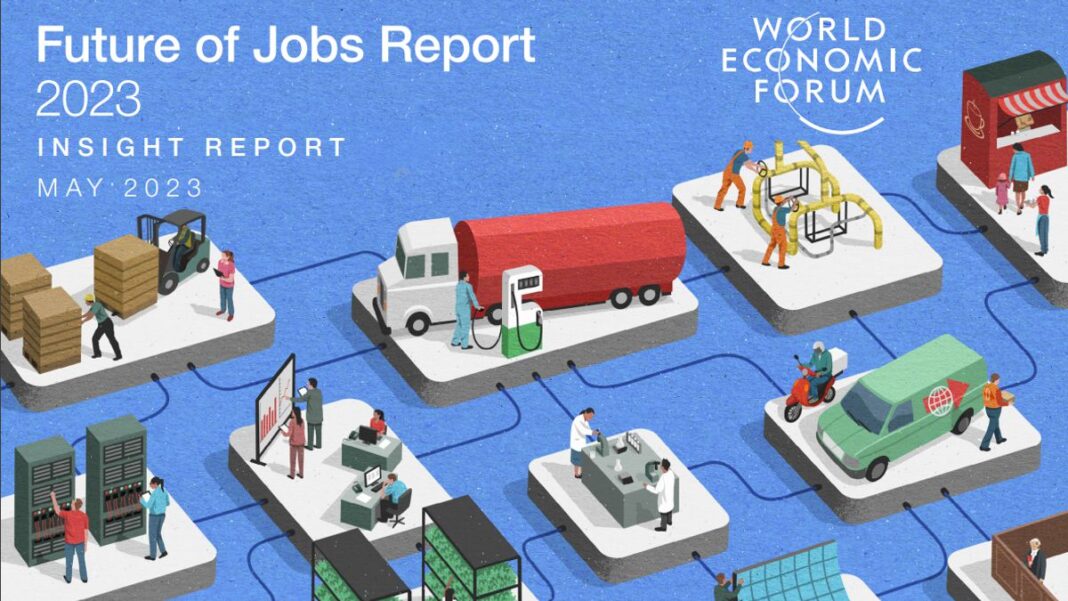
The World Economic Forum (WEF) has warned that the employment landscape will change drastically over the next five years amid increasingly widespread use of artificial intelligence (AI), the transition to green energy, environmental, social, and governance (ESG) standards, and slower economic growth.
According to WEF’s “The Future of Jobs Report 2023,” roughly 23 percent of jobs are expected to change by 2027, with around 69 million new jobs to be created and 83 million eliminated, resulting in a decrease of 14 million jobs, or 2 percent of current employment.
The report (pdf) surveyed 803 companies collectively employing more than 11.3 million workers in 27 industry clusters and 45 economies from across the globe, on macro and technology trends and their impact on jobs and skills, as well as the “workforce transformation strategies” that businesses plan to implement between now and 2027.
It found that clerical or secretarial roles, including bank tellers, cashiers and ticket clerks, data entry clerks, postal service clerks, and administrative and executive secretaries will likely see the fastest decline in roles over the next five years relative to their size today, with roughly 26 million fewer jobs by 2027.
Meanwhile, certain tech jobs, including those focused on AI and machine learning, sustainability specialists, business intelligence analysts, information security specialists, and fintech engineers, are expected to see an increase in employment.
Overall, the biggest job growth will likely be seen across the fields of education (10 percent, leading to 3 million additional jobs), agriculture (30 percent, or 3 million additional jobs), and digital commerce and trade (4 million additional jobs), according to the report.
Renewable Energy, ESG Pushing Job Changes
The WEF cites trends such as the transition to renewable energy, ESG standards—which are used by companies in the investment decision-making process to measure sustainable and ethical impacts—advancing technology adoption, and localization of supply chains as the “leading drivers of job growth,” while economic challenges such as ongoing high inflation, slower economic growth, and supply shortages pose “the greatest threat” to job creation.







